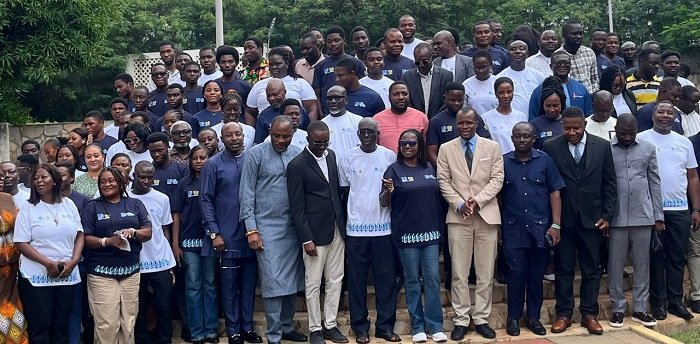The 50th anniversary of the United Nations Educational, Scientific and Cultural Organisation (UNESCO) Intergovernmental Hydrological Programme (IHP) was marked in Accra with a commemorative event that brought together policymakers, scientists, students, and key stakeholders in the water sector. The celebration, which also coincides with the 60th anniversary of UNESCO's commitment to advancing water sciences, was held on the theme, "Science for a Secure Water World in a Changing Environment."In a speech read for him, the Minister of Works, Housing and Water Resources, Mr Kenneth Gilbert Adjei, said science must play a pivotal role in tackling the complex challenges confronting the country and the global community, which included population growth, water pollution, climate change, and the pressures from rapid urbanisation. The Minister emphasised the need for sustainable water management, calling for public awareness, collaborative research, and practical solutions to protect Ghana's water bodies and ensure water security.The Executive Secretary and Chair of the Ghana Committee for UNESCO IHP, Prof.
Seidu Alidu, underscored the dangers posed by industrial activities and illegal mining to water quality. He proposed stronger collaboration between stakeholders, public education, and enforcement of regulations to address the issue. He stressed the need to focus on youth engagement, noting that children and students should be educated early on water conservation to influence their communities positively.Prof.
Alidu further disclosed that the Water Resources Commission was working actively to monitor and regulate water usage across the country. He highlighted the commission's mandate to issue licenses for surface and underground water use, and to revoke or penalise those who violate their terms.He revealed that the commission, in collaboration with agencies such as the Environmental Protection Authority (EPA), Ghana Meteorological Agency, and Community Water and Sanitation Agency, undertakes periodic research to test pollution levels and advise on policy decisions.The Country Representative of UNESCO, Mr Edmond Moukala, praised government's efforts in revitalising the water sector and commended its commitment to ensuring water accessibility in line with the 24-hour economy vision. He stated that reliable water access, especially in underserved and remote communities, was crucial not only for public health but also for economic development.He also underscored the importance of building the capacity of young researchers and students, indicating that the presence of school children at the event signals a new chapter in water education and stewardship.BY CECILIA YADA LAGBA

